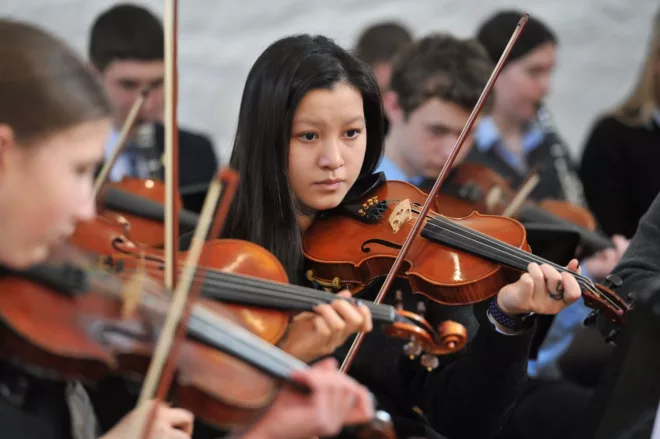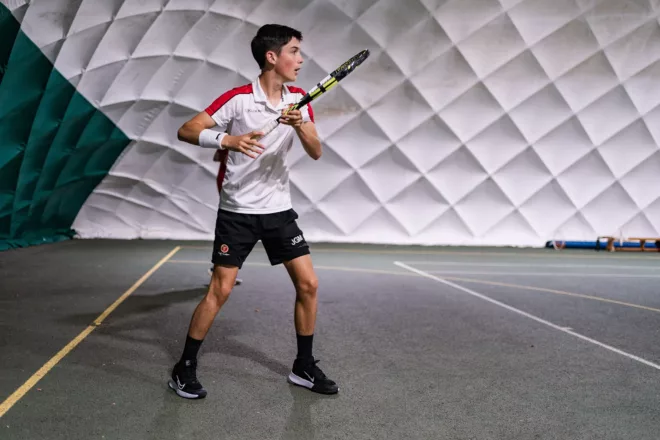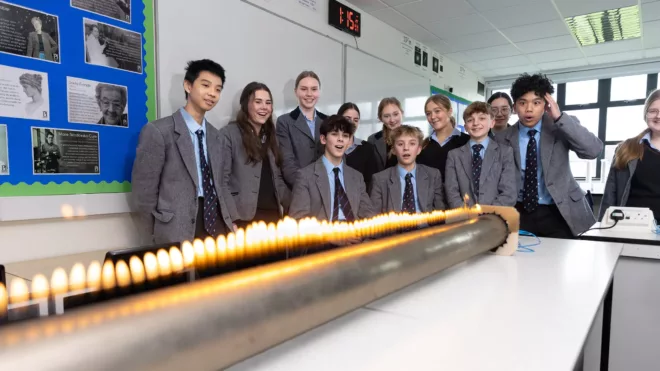Modern Foreign Languages
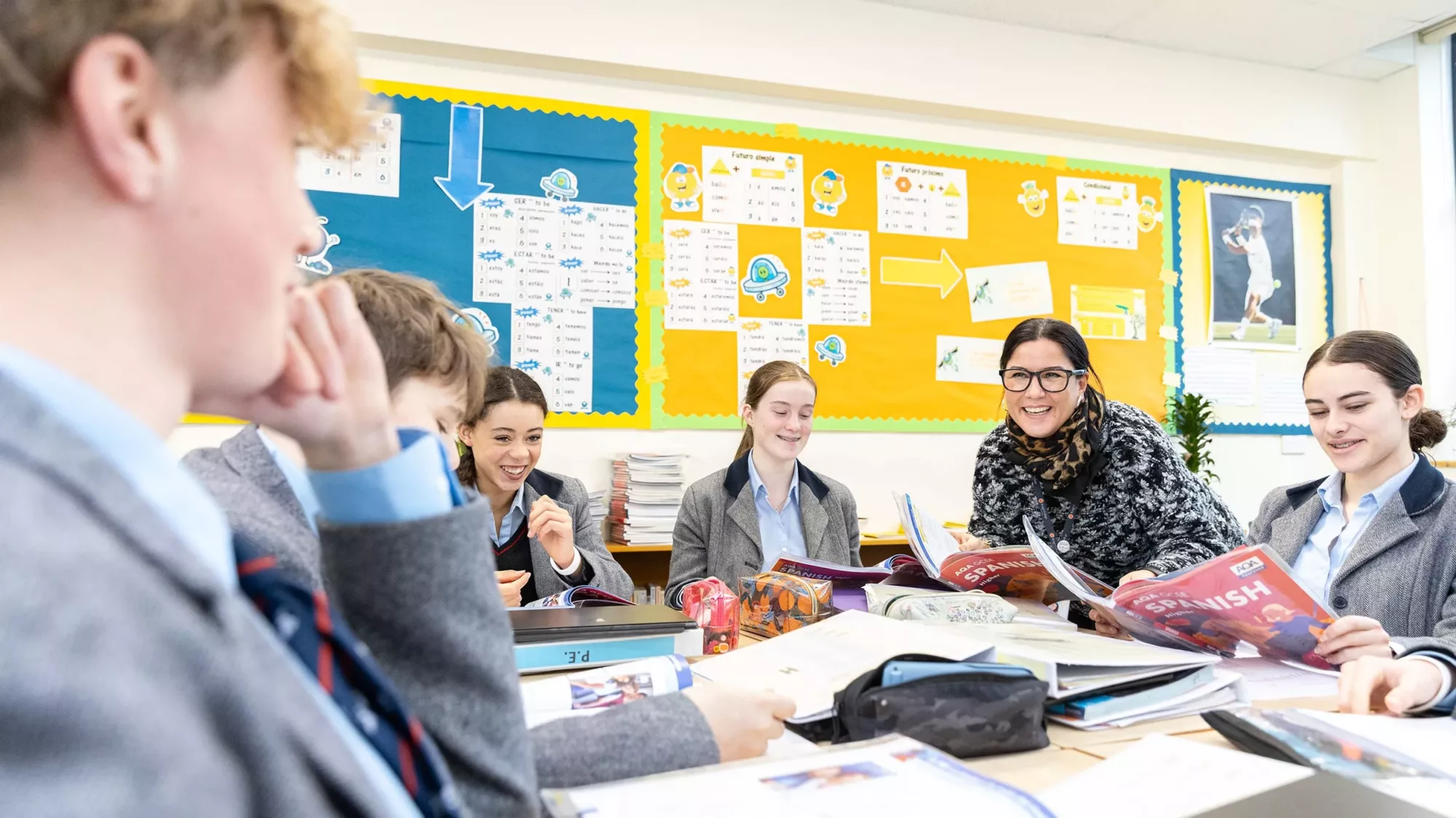
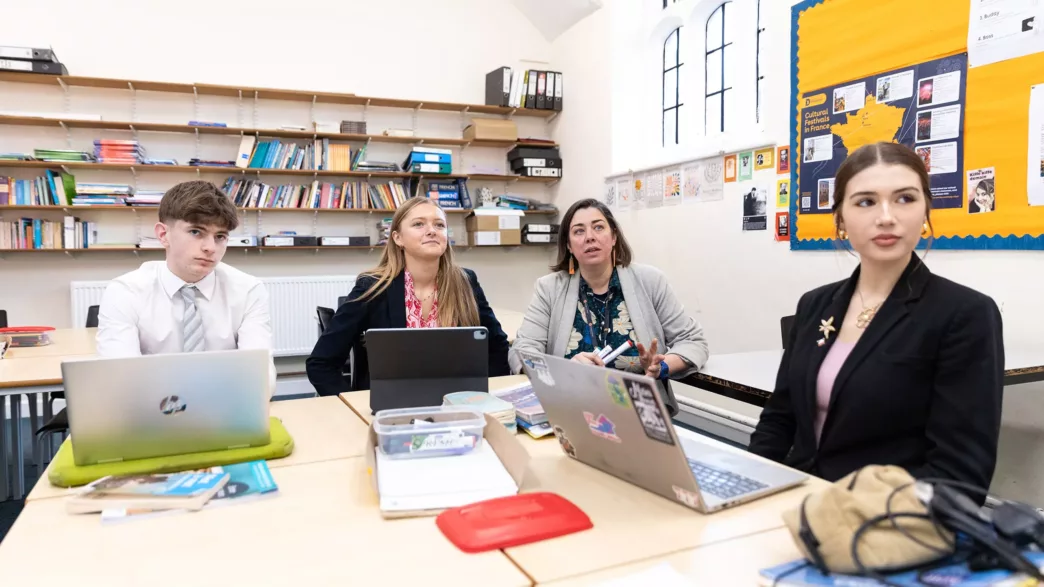
OVERVIEW
We offer curricular and co-curricular languages. Curricular languages are French, German and Spanish, and co-curricular languages are Chinese – Cantonese and Mandarin – and Russian. We can adapt to the needs of an international market and find examiners and teachers for other languages, such as Japanese or Italian.
OUR SYLLABUS
We follow the GCSE specification which started in September 2024, and use AQA as the examining board.
Each of the curricular languages are assessed in four distinct aspects: writing, speaking, listening and reading. Teaching focuses on each of these disciplines, based around topics such as holidays, the home, family and school.
Our excellent native-speaker language assistants provide weekly conversation lessons for pupils. Their teaching supports the learning taking place in language lessons and is a vital component in our pupils’ experience of the language and its country.
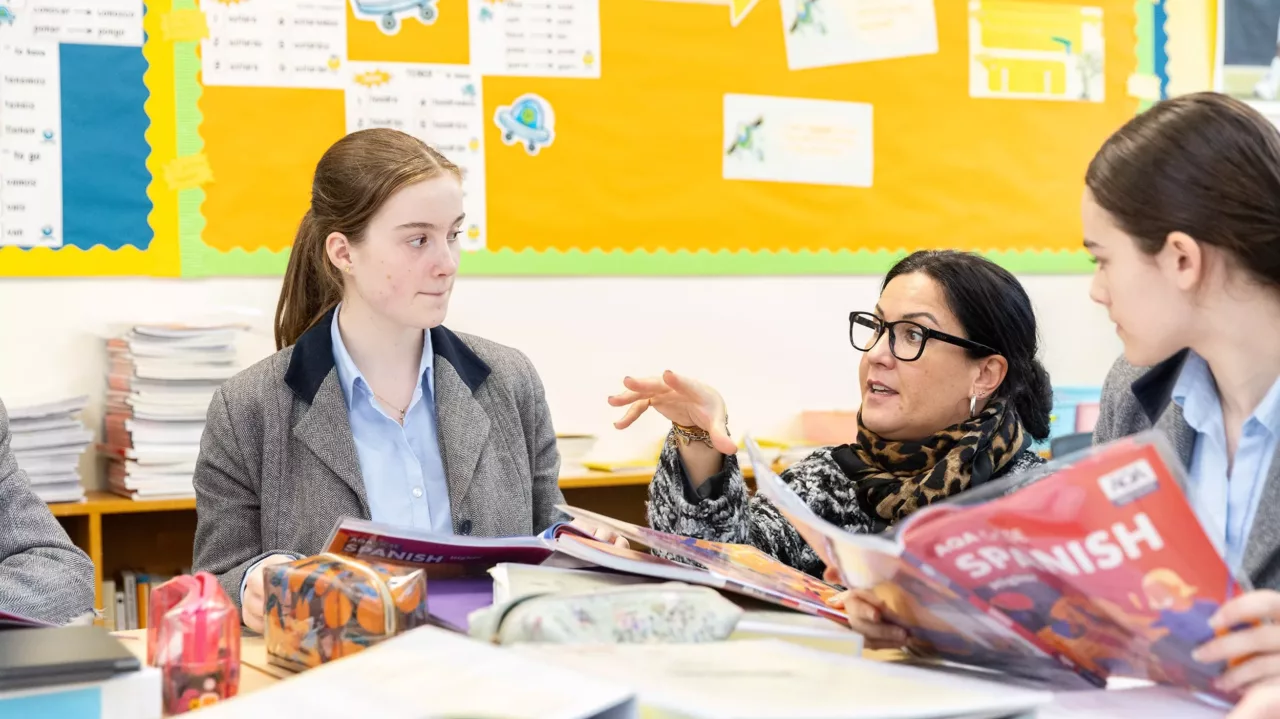
WHY STUDY MODERN FOREIGN LANGUAGES?
Language learning at King’s is lively, active and exciting. Our expert staff are highly skilled, motivated and constantly exploring new teaching tools and resources.
The Modern Languages department is always keen to expand pupils knowledge and understanding through experiences abroad. As well as arranging exchanges, the department has liaised with our musicians to visit Barcelona and our historians to experience Berlin as well as leading an expedition to Ecuador.
We also challenge our pupils to broaden their horizons and take charge of their learning. Whether this is through a language exchange or through the opportunities our ICT facilities offer for independent study, we are proud of our confident and dynamic modern linguists.
We are in close contact with Modern Languages’ Faculties from the University of Exeter and the University of Bath.
Last year, GCSE linguists attended a careers lecture at the University of Exeter about Languages and careers; and a speaker from the University of Bath visited us to talk about the same topic. We were also proud to win a linguistic competition organised by GCHQ recently.
When we speak about language learning today, we consider the human skills that it entails. People who speak other languages have not only developed the always mentioned lateral thinking. Speaking another language goes beyond that. People who speak other languages have gone through a journey to learn to be generally more successful problem-solving individuals who understand how challenging it can be to have a limited means of communication and how to overcome this.
People who speak and use other languages in an international setting are resilient. But most importantly, language learning gives people the skill to embrace and to work together with others (other cultures, religions, and societal norms).
As such, they are observant, intuitive, respectful and open minded, to name but a few of other soft skills. It is the cultural understanding of ‘the otherness’ and the unity of different cultures, religions, societal norms and politics that brings the world together in achieving business, humanitarian, cultural and political goals. We are a global society. This is undeniable in the same way that progress is unstoppable.
